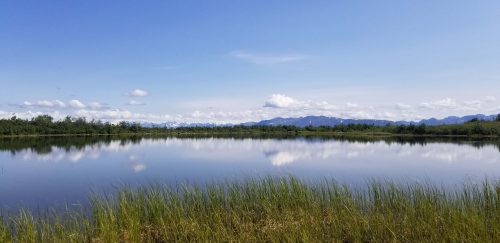Paper sheds light on vinegar-producing microbes
July 26, 2021

We may think of electricity as a modern human phenomenon, but there are microbes that have been around for millions of years powered by electricity. They are often found in wetlands. In the right environment, these microbes can create a product similar to vinegar.
A new journal article, co-authored by UAF graduate student Kyle Alvarado and engineering faculty member David Denkenberger, has estimated that this food source could be scaled up in a catastrophe to produce less than 1% of global food requirements. It would cost $3-$7 per dry pound retail.
Though the method is more efficient and lower cost than artificial light-dependent food (vertical farming), it is still not recommended as an alternative food because other options are better. Those include hydrogen single cell protein and growing food in greenhouses. These alternative food sources also have applications in space and for sustainability on Earth.
The project was funded by the Alaska Space Grant (NASA) and the Alliance to Feed the Earth in Disasters.


